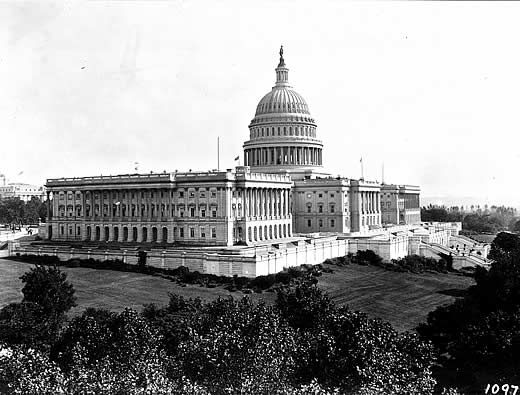See: An Unconstitutional Income Tax Without Income
"Can the government impose an income tax when you never had income? That may seem like a trick question, but it’s exactly what happened to Charles and Kathleen Moore."
......snipped for brevity....
Now the Moores have petitioned the Supreme Court to take their case, and the Cato Institute has filed an amicus brief supporting that petition."
This case may inspire our Supreme Court to, once and for all, address what is, and what is not, a direct tax, which still to this very day requires apportionment.
It may also inspire our Supreme Court to re-confirm the meaning of "incomes" as found in the Sixteenth Amendment, which was elaborated upon in EISNER v. MACOMBER , 252 U.S. 189 (1920)
"After examining dictionaries in common use (Bouv. L. D.; Standard Dict.; Webster's Internat. Dict.; Century Dict.), we find little to add to the succinct definition adopted in two cases arising under the Corporation Tax Act of 1909 (Stratton's Independence v. Howbert, 231 U.S. 399, 415 , 34 S. Sup. Ct. 136, 140 [58 L. Ed. 285]; Doyle v. Mitchell Bros. Co., 247 U.S. 179, 185 , 38 S. Sup. Ct. 467, 469 [62 L. Ed. 1054]), 'Income may be defined as the gain derived from capital, from labor, or from both combined,' provided it be understood to include profit gained through a sale or conversion of capital assets, to which it was applied in the Doyle Case, 247 U.S. 183, 185 , 38 S. Sup. Ct. 467, 469 (62 L. Ed. 1054). Brief as it is, it indicates the characteristic and distinguishing attribute of income essential for a correct solution of the present controversy."
JWK
If, by calling a tax indirect when it is essentially direct, the rule of protection [apportionment] could be frittered away, one of the great landmarks defining the boundary between the nation and the states of which it is composed, would have disappeared, and with it one of the bulwarks of private rights and private property. POLLOCK v. FARMERS' LOAN & TRUST CO., 157 U.S. 429 (1895) JUSTICE FULLER
"Can the government impose an income tax when you never had income? That may seem like a trick question, but it’s exactly what happened to Charles and Kathleen Moore."
......snipped for brevity....
Now the Moores have petitioned the Supreme Court to take their case, and the Cato Institute has filed an amicus brief supporting that petition."
This case may inspire our Supreme Court to, once and for all, address what is, and what is not, a direct tax, which still to this very day requires apportionment.
It may also inspire our Supreme Court to re-confirm the meaning of "incomes" as found in the Sixteenth Amendment, which was elaborated upon in EISNER v. MACOMBER , 252 U.S. 189 (1920)
"After examining dictionaries in common use (Bouv. L. D.; Standard Dict.; Webster's Internat. Dict.; Century Dict.), we find little to add to the succinct definition adopted in two cases arising under the Corporation Tax Act of 1909 (Stratton's Independence v. Howbert, 231 U.S. 399, 415 , 34 S. Sup. Ct. 136, 140 [58 L. Ed. 285]; Doyle v. Mitchell Bros. Co., 247 U.S. 179, 185 , 38 S. Sup. Ct. 467, 469 [62 L. Ed. 1054]), 'Income may be defined as the gain derived from capital, from labor, or from both combined,' provided it be understood to include profit gained through a sale or conversion of capital assets, to which it was applied in the Doyle Case, 247 U.S. 183, 185 , 38 S. Sup. Ct. 467, 469 (62 L. Ed. 1054). Brief as it is, it indicates the characteristic and distinguishing attribute of income essential for a correct solution of the present controversy."
JWK
If, by calling a tax indirect when it is essentially direct, the rule of protection [apportionment] could be frittered away, one of the great landmarks defining the boundary between the nation and the states of which it is composed, would have disappeared, and with it one of the bulwarks of private rights and private property. POLLOCK v. FARMERS' LOAN & TRUST CO., 157 U.S. 429 (1895) JUSTICE FULLER



